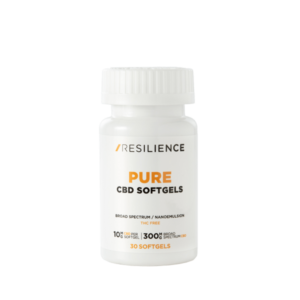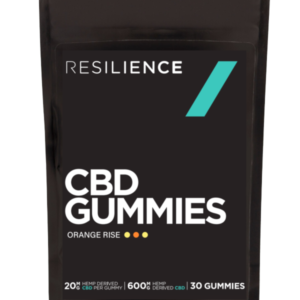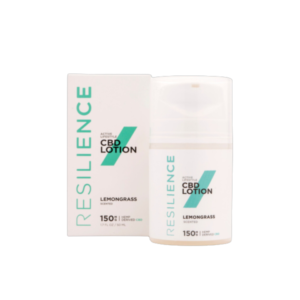
As you go on your daily walks, it may seem as though your dog is slowing down, they’re not as excitable by the dogs next door, and perhaps their hair has lost that silky shine that once made them the talk of the neighborhood.
If your dog is still young and healthy, they may be experiencing a nutritional deficiency.
While you should always prioritize a vet visit if you find that your pup isn’t acting like themselves, there is also a wealth of nutritional supplements for dogs that can help get them back on their feet and feeling their best. Let’s dive in.
What Supplements Might Your Dog Need for Health and Vitality?
Just like us, dogs may need some wellness support from time to time. Feeding your dog a well-rounded diet with vital vitamins and minerals should be a top priority. But if you find that your dog is experiencing a low mood, skin or coat changes, lack of energy, or change in feces, it may be time to supplement their diet with something special.
When asking yourself, what supplements should I give my dog? It’s important to consider several factors, including:
- Your pup’s age
- Their overall health
- Specific conditions for which they need support
- Your veterinarian’s recommendation
That being said, let’s dig into 7 common dog nutrition supplements.
#1 Multivitamins
One dog nutrition supplement your veterinarian may recommend is a multivitamin. Multivitamins can include many essential vitamins that your pet needs, such as:
- Vitamin A
- B vitamins
- Vitamins C, D, E, and K
- Choline
Dogs need each of these to stay happy and healthy. However, you should be careful about the amount of each vitamin present in a multivitamin for your dog. For example, excess amounts of some vitamins, such as Vitamin A, may lead to health problems.
How Multivitamins May Help
In the right amounts, multivitamins can make up for deficiencies in your dog’s food. Here are some of multivitamins’ many benefits:
- Vitamin A – A must for immune and vision health
- Vitamin B – Important for immune response and hormone function
- Vitamin C – A potent antioxidant
- Vitamin E – Needed for cell functions and fat metabolism
- Vitamin K – Helps with blood clotting
When changing your dog’s diet, ensure that any multivitamin you provide your pup doesn’t have any harmful dyes or coatings included.
#2 Glucosamine
Glucosamine is another potentially beneficial dog supplement, particularly for adult dogs. In your dog’s body (and your body), glucosamine is a compound that occurs naturally in the cartilage. Glucosamine’s job is to provide a soft cushion around the joints. As adult dogs grow older, that cushioning wears away, leading to joint discomfort.
How Glucosamine May Help
In dogs who suffer from joint aches, a glucosamine supplement might help alleviate some of that discomfort. More specifically, glucosamine may help dogs experiencing issues in their:
- Hips
- Knees
- Elbows
- Shoulders
- Carpus (ankle areas)
Glucosamine is often sold in tablets, pills, liquids, and powders.
#3 Turmeric
You’ve probably read about the bountiful benefits turmeric can have for humans. But does it offer those same anti-inflammatory boosts to your canine pal? While there has been little formal research, many anecdotally report that adding a turmeric supplement to their dog’s routine may provide some benefits for their canines.
How Turmeric May Help
In humans, and perhaps in canines as well, turmeric is known to have several uses for overall wellness, such as:
- Antimicrobial properties
- Anti-inflammatory benefits
- Immune system boosting effects
One problem you may encounter when giving your dog turmeric is getting them to consume it. That’s because dogs might be put off by the flavor of the spice. As such, you should speak with your veterinarian for tips on how to include turmeric in your dog’s diet if needed.
However, it never hurts to lather a turmeric dog supplement in peanut butter to get the job done.
#4 Probiotics
Probiotics supplements have stormed the shelves of grocery stores due to the potential benefits they offer humans. However, some dogs may also benefit from taking probiotics. There are several different types of probiotic supplements you might give your dog, including:
- Plain, unsweetened yogurt
- Chews
- Probiotic powders
- Capsules
- Enhanced dog food
The best type for your pet is a matter of preference and veterinarian recommendation.
How Probiotics May Help
In dogs, probiotics are often used to balance intestinal health. Sometimes dogs can suffer from digestive issues as a result of:
- Age
- Infection
- Stress
- Dietary shortfalls
- Medication
A probiotic supplement might be recommended to help restore a healthy balance to your dog’s digestive system.
#5 Omega-3 Fatty Acids
Whether you have a puppy or an older dog in their senior citizen years, omega-3 fatty acids are essential to good dog health. Unfortunately, dogs’ bodies cannot make Omega-3s. They have to get all of the fatty acids they need from their diet. Some sources of Omega-3s your dog may enjoy include:
- Fish oil capsules
- Salmon
- Sardines
- Soy
Many dog foods include Omega-3s in their formulas, but some dogs may fall short of their requirement and need an extra boost.
How Omega-3 Fatty Acids May Help
Omega-3s are a must for many essential health functions. Some of the key reasons your dog needs sufficient Omega-3s include:
- Skin and hair health
- Immune system function
- Brain health
- Cardiovascular health
- Antioxidant powers
- Kidney function
- Control of inflammation
- Prevention of dry, itchy skin
If your dog is falling short on their Omega-3 consumption, your vet may suggest a supplement to help your furry friend reach its full health potential.
#6 Antioxidants
Antioxidants are powerful fighters against damaging free radicals. Dogs need a diet rich in antioxidants for optimal health and wellness. Instead of taking a separate dietary supplement, your dog can get antioxidant boosts from:
- Vitamins A and C
- Fresh produce
- Vitamin E
As with any other dietary supplement, you should always check with your vet before adding more antioxidant-rich sources to your dog’s routine.
How Antioxidants May Help
The primary jobs of antioxidants include helping your body repair and prevent cellular damage. Damage may result from aging, illness, infection, or inflammation.
#7 CBD
Lastly, your dog may benefit from adding CBD pet products to its wellness routine. CBD has become increasingly popular in both human and animal markets. While there has been little research on the benefits of CBD for dogs, the studies that exist and anecdotal evidence suggest that there may be good reasons to include CBD in your dog’s health routine.
It is important to note there is a difference between melatonin vs CBD for dogs. Whether you are looking for ways to help support your pet’s sleep hygiene or ease their nervous system, it is always best to consult with your veterinarian and do your fair share of research before incorporating a new supplement into your dog’s routine.
How CBD May Help
In addition to providing wellness support, a CBD canine supplement may also:
- Ease joint discomfort
- Assist restless dogs
- Help your pup remain calm and relaxed
- Support your dog’s immune system
A frequent occurrence that most of us dog owners face is our pet’s anxiety when it comes to going for a car ride. If you are on the search for ways on how to help dogs with car anxiety, CBD specifically formulated for pets could be a great option for your furry friend.
When Should You Give Your Dog Nutritional Supplements?
Dietary supplements for dogs aren’t always necessary. If your dog is young, healthy, and eating high-quality, balanced food every day, they’re likely getting the nutrition they need from their food. However, many dogs could benefit from specific supplements in their daily routine, such as:
- Dogs who have recently been ill or injured
- An older dog who is in its senior citizen years
- Dogs who need to gain weight
- Picky eaters
- Dogs with behavioral problems
- Very active dogs
- Dogs with digestive issues
If your pup fits any of these categories, visit your veterinarian before beginning a supplement regimen. The vet can tell you the best options for your dog’s specific needs.
What Should You Look for When Shopping for Supplements for Your Dog?
If you decide to give your dog supplements and your veterinarian agrees, there are several key things you must be aware of before making a purchase. To that end, pet supplement shoppers should always do the following:
- Read the label carefully – Supplements for animals and people aren’t regulated by the FDA. This means that some products don’t contain what the label claims. Read the ingredients carefully to ensure that you’re getting what you pay for.
- Research the company’s reputation – Consumers who have a bad experience with a product often share that experience online. Before you purchase a supplement for your pup, spend some time researching the manufacturer. Do they deliver high-quality products? Have dogs experienced any issues after taking their products?
- Be ingredient savvy – Some ingredients should never be in your dog’s supplements, such as chemical preservatives, sugar alcohols, food dyes, and rendered fats. All of these can be harmful to your pet and should not be in any products you purchase for them.
- Ask about medication interactions – If your dog takes regular medication, adding a supplement to their routine may interfere with the efficacy of their meds. Make sure you’ve cleared any supplements with your vet before giving them to your dog.
Resilience CBD: Your Trusted Source for Canine CBD
Sometimes our furry friends need wellness support, and nutritional supplements can help. A nutritional supplement may provide an added health boost to help support skin, digestive, eye, and joint health. However, before you give your dog a supplement, you should always check with your veterinarian and research the company from which you’re purchasing the product.
If you’re looking for reliable CBD products and supplements for your dog, look no further than Resilience CBD.
Our pet CBD products are made with natural ingredients, and they’re designed to promote general wellness, health, and vitality so your pup can keep up with your active lifestyle. Check out our online store today to learn more.
Sources:
PetMD. Should I Give My Dog Supplements? https://www.petmd.com/dog/centers/nutrition/evr_dg_dog-dogs-really-need-nutritional-supplements
American Kennel Club. 7 VItamins Your Dog Needs for a Healthy Life. https://www.akc.org/expert-advice/nutrition/vitamins-dogs-need-healthy-lifestyle/
American Kennel Club. Can Glucosamine for Dogs HelpTreat Arthritis and Joint Pain? https://www.akc.org/expert-advice/health/glucosamine-dogs-arthritis-joint-pain/
Whole Dog Journal. Benefits of Turmeric for Dogs. https://www.whole-dog-journal.com/care/benefits-of-turmeric-for-dogs/
American Kennel Club. Probiotics for Dogs. https://www.akc.org/expert-advice/nutrition/probiotics-for-dogs
NIH. Omega-3 Fatty Acids. https://ods.od.nih.gov/factsheets/Omega3FattyAcids-Consumer/
VCA Animal Hospitals. Antioxidants. https://vcahospitals.com/know-your-pet/antioxidants
Frontiers in Veterinary Science. Pharmacokinetics, Safety, and Clinical Efficacy of Cannabidiol Treatment. https://www.frontiersin.org/articles/10.3389/fvets.2018.00165/full
Whole Dog Journal. Choosing Canine Supplements Wisely. https://www.whole-dog-journal.com/food/choosing-canine-supplements-wisely/
PubMed. Veterinary Pet Supplements and Nutraceuticals. https://www.ncbi.nlm.nih.gov/pmc/articles/PMC7802882/







